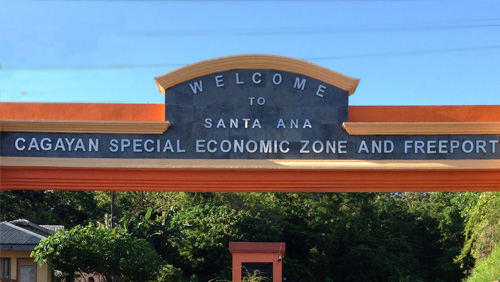The Philippines’ former top online gambling licensing body is reportedly looking for an alternative revenue stream after President Rodrigo Duterte clipped its licensing power.
 Manila Bulletin reported that Cagayan Economic Zone Authority (CEZA) is considering the possibility of creating a cluster of tourist attractions in the northern Philippines, one that will include a casino gaming complex, hotel and villas, water theme park, golf courses, a horse-riding layout and a premium duty-free outlet shopping mall.
Manila Bulletin reported that Cagayan Economic Zone Authority (CEZA) is considering the possibility of creating a cluster of tourist attractions in the northern Philippines, one that will include a casino gaming complex, hotel and villas, water theme park, golf courses, a horse-riding layout and a premium duty-free outlet shopping mall.
CEZA Administrator and CEO Raul L. Lambino said the tourism complex will be constructed in the island of Palaui, Cagayan. The 7,000-hectare protected sanctuary boasts a 20-kilometer powdery shoreline that could rival Boracay island, a popular Philippine tourist destination routinely dubbed the world’s best island.
“We are now revisiting the Freeport’s master plan to update it with the changing time,” Lambino said, according to the news outlet. “Our medium-term development is to be centered on building the conducive environment for investors to locate their businesses at the Freeport.”
Lambino said the agency is working to improve the infrastructure in CEZA to enhance the investment environment in the Greater Cagayan Advanced Economic Zone and Freeport.
Previously, many CEZA-licensed operators chose to base their business process outsourcing (BPO) and live dealer operations in urban areas. However, that came to an end when PAGCOR ordered all Philippine-based online operators to get a new Philippine Offshore Gaming Operator (POGO) license.
The CEZA chief said the agency is in talks with a Taiwan-based firm and two other major investors for the development of a cluster of tourist attractions in Palaui.
A Korean-based company has submitted a PHP2-billion ($38.84 million) proposal for the dredging, development and rehabilitation of Port Irene, which is strategically located along major international shipping lanes.
Meanwhile, The Manila Times reported that the CEZA has tapped Sinosun Subic Bay Holdings Corp. to conduct a feasibility study on the creation of a financial technology (fintech) city within the economic zone.
Under the agreement, Sinosun will conduct a feasibility study on how to construct and sustain fintech establishments, including a blockchain center, cryptocurrency mining farm, fintech startup incubators and cryptocurrency exchange.
Sinosun said it already tapped China Energy Construction to put up a 20-megawatt power plant in the Cagayan province in order to support the country’s bid to mine cryptocurrencies.